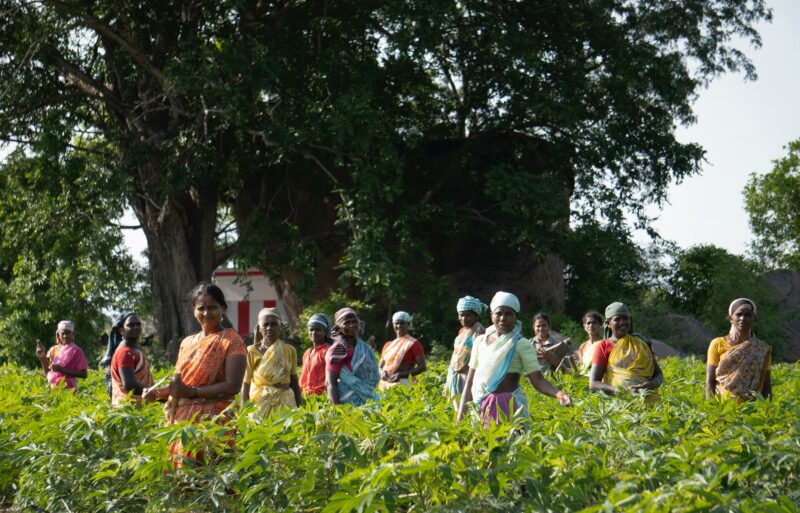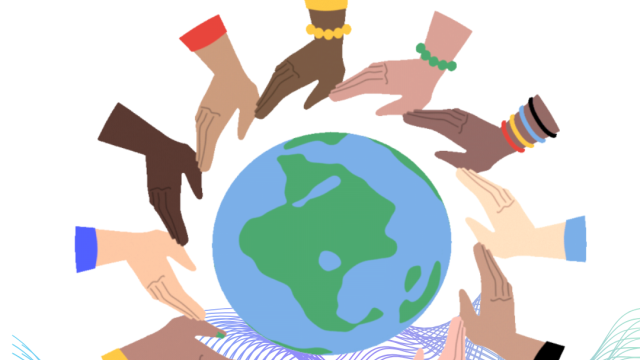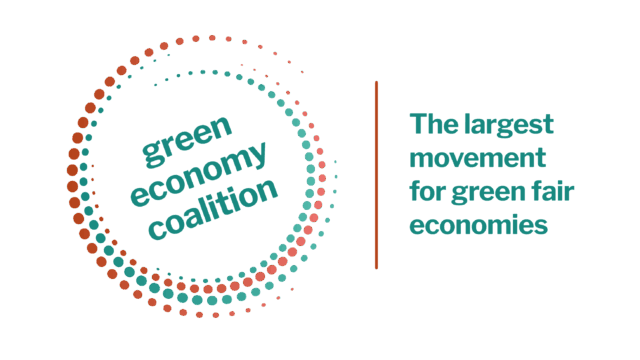Fear, trust, transformation: eco-social contracts for the polycrisis
When you close your eyes and look into the future – what do you see?

I think our new research paper "Eco-social Contract in Polycrisis" is the most important document you should read this year. Here’s why.
First, context. We have had an extraordinary few years, and this last year has been the hottest and most dangerous yet. Our hearts go out to the victims of fires or floods in Hawaii, in Canada, Greece, China, India, Libya – the list grows too long. We hear ever more clear pronouncements that these are driven by climate change. And these extremes are the consequence of only 1.2 degrees of change.
So, I ask you a profoundly important question, when you close your eyes and look into the future – what do you see?
Do you see an escalation of crisis as we accelerate beyond the tipping point of 1.5 degrees? Unbearable heat, more extreme floods and droughts spreading their blight across food supply chains; a political turn towards strong man populism and nationalism; a zero-sum geopolitical competition for resources, fought from behind ever higher border fences to keep out the increasingly desperate migrants from failing states. All these things are depressingly easy to imagine.
Or if you try really, really hard, can you imagine a greener, fairer society, where the climate crisis has been averted, nature has been restored, people all over the world are safe and prospering, our democracies are stronger, women and girls have equal rights, care is valued, where good business is the norm and our economies create positive outcomes for both society and the environment?

A tale of two futures
Although at times it might be harder to imagine, we are actually closer to the second outcome than the first.
We have defined fair and green economies. We know what we need to do to catalyse green energy systems, green transport, food and housing systems. We know how to restore nature, and we understand the economic incentives and taxes, policies, and institutions we need to bring all this about. Even now, we can see this thinking teetering on the edge of mainstream. We see glimmers of it in the US Inflation Reduction Act, the European Green Deal, and China’s Eco-Civilisation. The “what” is now clear.
So the last giant barrier that stands between us and safety, between us and the green, fair and prosperous life is no longer the “what”, it is the “how”. How do we implement all these things? How do we transform?
This paper answers that question. It does so by addressing four clear but often unacknowledged truths.
The four truths of economic transformation
Truth One. You cannot have a sustainable country in an unsustainable world. Sweden can top all the sustainability rankings out there, but if the global polycrisis continues unchecked it too will be overwhelmed. The majority of countries must transition or we will all fail. A shared green deal must be as global as possible and account for the majority of nations. This means, in the time remaining to us, zero-sum competition will not suffice and global collaboration is essential.
Truth Two. The green transition cannot be imposed from the top down. This is because real transformation happens at the behavioural and cultural level: what you buy, how you live, what you demand of politics and business. So, policy is catalytic but it will be culture that delivers. The people must want and demand this change.
“ The key to unlock this transformation is for politicians not to see these deliberative movements as a threat, but rather as a mandate.”
Truth Three. This transformation touches every life, every sector, every community, and every business. So designing and managing that change must encompass the whole of society. It needs to happen in church and community halls, in towns and cities, in faith groups, in women’s institutes, in youth groups, in board rooms, in parliaments, in stock markets, in UN halls. The processes must deliver a representative sample of the population, including special attention to impacted communities (such as fossil fuel workers); it must reach out to excluded communities particularly women and youth.
Truth Four. Change requires trust in leaders and institutions. Society will need capable figureheads to lead the way on transformation, down roads that may be uncertain, sometimes painful, and potentially precarious. Unfortunately, just when we need it most, our leaders and institutions have squandered public trust through divisive culture-war politics, prevarication over vital issues, and lazy adherence to 20th century economic orthodoxy. The green transformation must build trust. There will be little time for second chances.
Getting from what to how
So what is the “how” that we propose? This paper sets out the answer: in short, the negotiation of new eco-social contracts. These are societal engagement mechanisms that support societal debate, that build consensus and solidarity for action, that define priorities and pathways, and deliver an irrefutable mandate for transformative change.
The creation of eco-social contracts is a transformative process. And the good news is that we see different permutations of them already proliferating around the world. We see at least 10 different versions for different political systems, ranging from the proactive and deep constitutional reforms to narrower reactive strategic litigations. All of them signal a positive trend – the deliberative wave is rising and people are starting to demand change.
The key to unlock this transformation is for politicians not to see these deliberative movements as a threat, but rather as a mandate. We believe that this transformation of political thought from threat to opportunity will come when politicians realise two things. First, that left unaddressed, the crisis will overwhelm their populations and destabilise their societies. And second, that their economies will be left behind in the accelerating green economic race, as green technologies, industries, investment, jobs and money go elsewhere.

The new political thinking must be – “Success is defined by achieving the biggest change in the shortest possible time.” And to achieve that, you must get your people on board.
Negotiating new eco-social contracts will deliver this mandate for change. New eco-social contracts that include fairer representation and outcomes for women, youth, indigenous communities will make clear who will pay, who will benefit, who will act and how our leaders will be held to account. They will redefine the relationship with nature as nature must also get a better outcome in this transition.
So we introduce this research on eco-social contracts in a polycrisis to you. Over the next decade, we will help the proliferation of these processes, spread their inspiration and lessons, and connect their movements and their power.
We commend ‘eco-social contracts’ to you. We believe it is the idea that is big enough for the challenge.
- Oliver Greenfield, Green Economy Coalition


